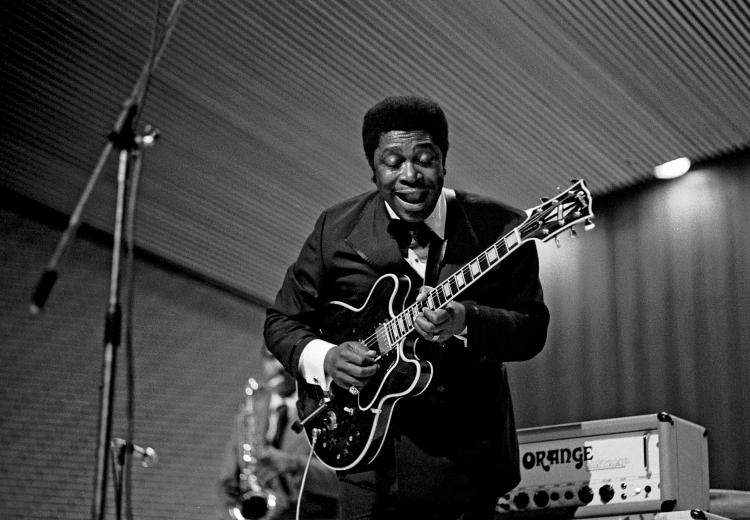The Music of African American History

B.B. King Live in Hamburg, Germany, November 1971.
This lesson traces the long history of how African Americans have used music as a vehicle for communicating beliefs, aspirations, observations, joys, despair, resistance, and more across U.S. history. Teachers are encouraged to think of the resources and activities included below as examples to be incorporated over the course of a school year rather than a single unit of study. For example, lessons on the slave trade and slavery can include review of factors that contributed to the development of the spiritual. By examining the 19th-century biography of Harriet Tubman, students learn how she used spirituals as a secret signal to fugitive slaves on the Underground Railroad.
Similar themes and musical traditions grew into what the 20th century came to know as blues and jazz songs about Jim Crow, WWI, the Great Depression, and WWII. Against this background, students can consider the significance of the line from "an old Negro spiritual" with which Martin Luther King, Jr. ended his famous "I Have A Dream" speech and the influence of spirituals on organizing for civil rights during the 1940s, 50s, and 60s. From blues to jazz to gospel to soul to rhythm and blues to rock and roll to funk to hip hop and many forms, genres, and styles in between, these lessons engage students with lyrics, sounds, point of view, close reading, history, culture, media analysis, and performance as part of a rich tapestry of creativity in American music.
Guiding Questions
What role has music played in documenting and reflecting African American history and culture?
To what extent has music inspired political and cultural change in the U.S.?
How has music been connected to civic mindedness and participation and vice versa?
Learning Objectives
Students will examine the ways in which music has informed and reflected African American history and culture.
Students will analyze texts to compare the relationship between music and civil rights over time.
Students will evaluate the extent to which music continues to play a role in the long civil rights movement.
